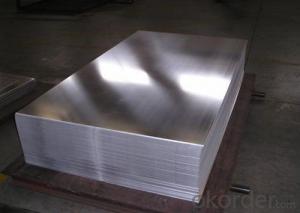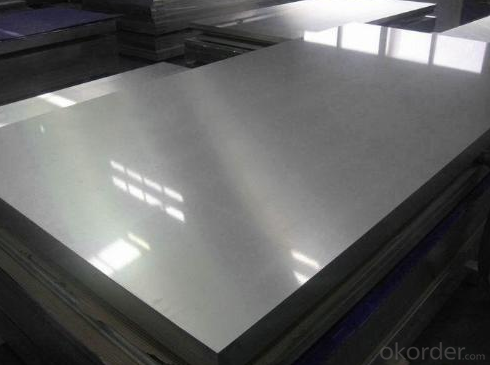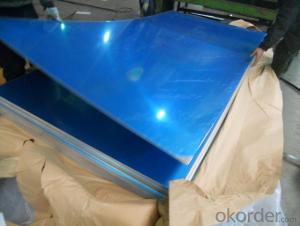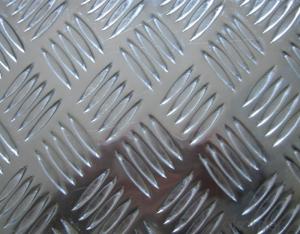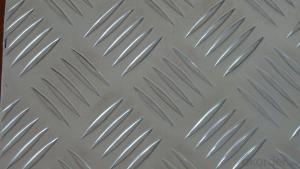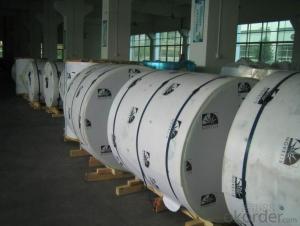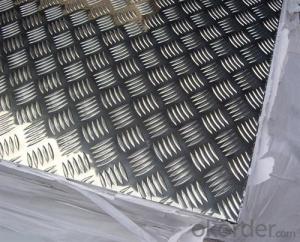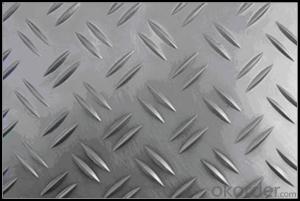1/8 Inch Thick 0.3-3.5mm Ribbed Aluminum Mirror Sheet for Trailer - Anti-Skip
- Loading Port:
- China main port
- Payment Terms:
- TT OR LC
- Min Order Qty:
- 5 m.t.
- Supply Capability:
- 500 m.t./month
OKorder Service Pledge
OKorder Financial Service
You Might Also Like
Specification
0.3-3.5mm ribbed aluminum mirror sheet for trailer/for anti-skip
ALLOY : AA1***(AA1050,AA1060,AA1070,AA1100etc)
AA3***(AA3003,AA3004,AA3005,AA3105etc)
AA5***(AA5052 etc)
TEMPER:H14,H18,H24,H26,H32
THICKNESS:0.2mm-20mm
WIDTH:10mm-1500mm
EMBOSSED PATTERNS : Diamond, stucoo,bars etc
STANDARD: GB/T3880-2006
Special specification is available on customer's requirement
Product Description
Goods name | Aluminum plate |
alloy | Yes |
Plance of origin | China |
Quality | Prime quality |
Certificate | ISO9001 |
Grade | 3000 Series |
Thickness | 0.3-150mm |
Type | Plate |
Width | 300-1950mm |
Model number | 3003,3004,3005,3014,3105 |
Surface | Mill finish |
Temper | O-H112 |
Ensure | we can supply customers' with different specifications of the highest quality and lowest price. Sincerely welcome to contact us for the future details if any item interest you ,and we will make every effort to assure that your requirements will be satisfied,and we hope to establish long-term business relations with you on the basis of the equality and mutual benefit. |
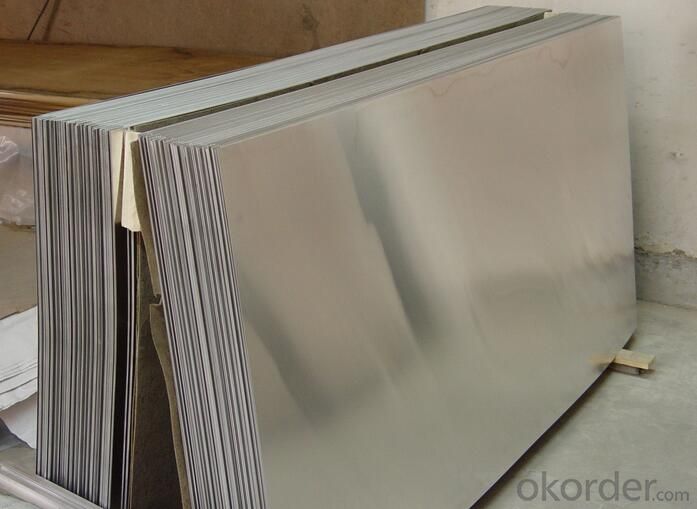
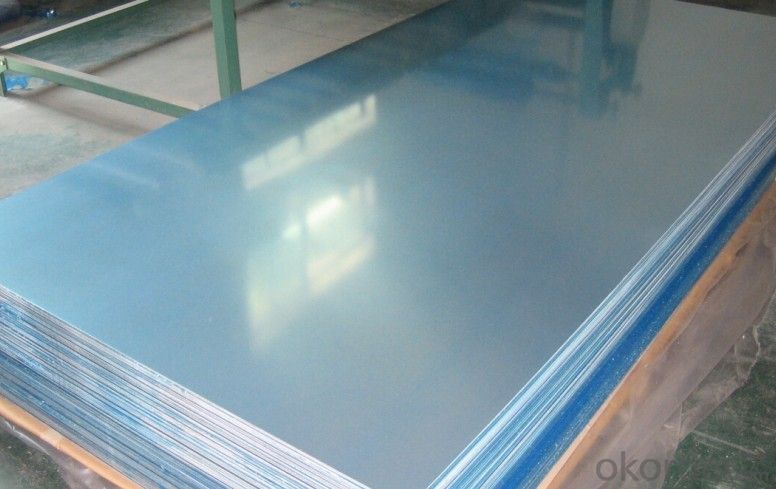
- Q: Can aluminum plates be welded with stainless steel or iron nuts?
- Upstairs is quite right! Even with brazing, it's hard to operate without experience
- Q: Can aluminum sheets be custom cut to specific sizes?
- Yes, aluminum sheets can be custom cut to specific sizes according to the requirements of the project or application.
- Q: Does aluminum foil keep food warm or cool, or is it just a convenient material to cover food with?
- The shiny side is slightly better reflector of heat. Face that side of the foil in the appropriate direction. To keep things cold, put the shiny side on the outside -- that will reflect incoming heat. To keep things warm, face the shiny side inward toward the hot food -- to reflect the heat that is trying to escape back into the food. So yes it keeps food warm and cool :)
- Q: I need to find 3 elements for my science hw tonight. I was wondering if aluminum foil is a pure element. And also I was wondering if anyone had any ideas of what is a pure element (not a compound or an alloy). Thanks!!!!
- Aluminum Foil is about 80 - 85% pure aluminum. But most aluminum foil products have been laminated with other substances for strength, looks etc. Aluminum Foil is close to being a Pure element. A Pure Element is a substance with only one type of particles in it. Anything on the Periodic Table of Elements, is a Pure Element. eg. Tin, Oxygen, Gold. A Compound is like H20, it is the product of a synthesis reaction. A Compound is a pure Substance but not a Pure Element An Alloy is a Solid Solution of 2 or more metallic compounds or elements. An alloy is a Homogeneous mixture. Not a Pure Element. Hope this helps.
- Q: This question asks about the various applications of aluminum sheets within the construction industry.
- <p>Aluminum sheets are versatile in construction due to their strength, durability, and lightweight properties. They are used for roofing and cladding to provide weather resistance and aesthetic appeal. Aluminum sheets are also utilized in the fabrication of window frames and doors for their strength and thermal efficiency. They are employed in the construction of scaffolding and temporary structures due to their lightweight and ease of assembly. Additionally, aluminum sheets are used in the manufacturing of facades, canopies, and decorative elements for their modern look and low maintenance requirements.</p>
- Q: How do you clean and maintain aluminum sheets?
- Achieving cleanliness and maintenance for aluminum sheets can be accomplished by adhering to the following guidelines: 1. Commence the cleaning process by employing a soft cloth or sponge to wipe away loose dirt and debris. Be cautious not to employ abrasive materials that may cause surface scratches. 2. For routine cleaning, combine a gentle detergent or dish soap with warm water in a sink or bucket. Dip the cloth or sponge into the soapy solution and delicately scrub the aluminum sheet in circular motions, applying gentle pressure. Ensure to cleanse both sides of the sheet. 3. Thoroughly rinse the sheet with clean water to eliminate any lingering soap residue. It is crucial to eradicate all traces of detergent, as it may leave behind a film or residue. 4. In the case of stubborn stains or grime, a non-abrasive cleaner specifically formulated for aluminum surfaces can be utilized. Apply the cleaner to a cloth or sponge, and proceed to scrub the affected areas. Rinse with clean water afterwards. 5. Upon completion of the cleaning process, it is imperative to dry the aluminum sheet meticulously with a clean, soft cloth to avoid water spots or streaks. Complete drying is vital to prevent any moisture that may lead to corrosion or oxidation. 6. To uphold the shine of the aluminum sheet and safeguard it against future damage, the application of a thin layer of aluminum polish or wax can be beneficial. Use a clean cloth to apply the polish or wax, creating a protective barrier and enhancing the sheet's appearance. 7. Regularly inspect the aluminum sheet for any indications of damage, such as scratches or dents. If any issues are detected, take appropriate measures to repair or replace the sheet in order to prevent further damage. By adhering to these steps, one can effectively clean and maintain aluminum sheets, ensuring their durability and preserving their aesthetic appeal.
- Q: I'm working on a costume that's entirely made of cardboard (it's a giant robot), and I was wondering What's the best way to1 turn Soda cans into aluminum sheeting2: attach the aluminum everywhere on the robot3. Attach the aluminum to the aluminumThank you in advance.
- Why not heavy duty aluminum foil glued to cardboard? that would look a lot better than patched up pieces of aluminum from tin cans. How would you connect the chunks of aluminum together? and remove the label. Note that soda cans have a coating of plastic on the inside. I don't see any easy way to attach the bits of aluminum from tin cans together, and remove the painted on labels. It would look just like that, pieces of cans glued together. In stead of cardboard you could use foam board which is lighter and more rigid.
- Q: Can aluminum sheets be used for railway carriages?
- Yes, aluminum sheets can be used for railway carriages. Aluminum is a lightweight and durable material that offers numerous advantages, such as corrosion resistance, energy efficiency, and ease of fabrication. It has been increasingly utilized in the construction of railway carriages due to its strength-to-weight ratio, which allows for improved fuel efficiency and higher payload capacity.
- Q: Are 101 aluminum sheets available in different finishes (e.g., brushed, polished)?
- Yes, 101 aluminum sheets are available in different finishes such as brushed and polished. These finishes are achieved through various processes that result in different textures and appearances on the surface of the aluminum sheets. Brushed finishes are created by brushing the surface of the sheet with an abrasive material, which creates a pattern of fine lines. This finish is commonly used to create a matte appearance. On the other hand, polished finishes are achieved by polishing the surface of the sheet to a high shine. This finish is often used to create a reflective and smooth surface. So, depending on the desired aesthetic or functional requirements, one can choose between brushed or polished finishes for 101 aluminum sheets.
- Q: 5052 aluminum plate and LY12 aluminum plate is the same?
- The 5052 series is aluminum magnesium alloy, the magnesium alloy belongs to the lower density alloy, the 5052 alloy aluminum plate density is 2.68
Send your message to us
1/8 Inch Thick 0.3-3.5mm Ribbed Aluminum Mirror Sheet for Trailer - Anti-Skip
- Loading Port:
- China main port
- Payment Terms:
- TT OR LC
- Min Order Qty:
- 5 m.t.
- Supply Capability:
- 500 m.t./month
OKorder Service Pledge
OKorder Financial Service
Similar products
Hot products
Hot Searches
Related keywords
